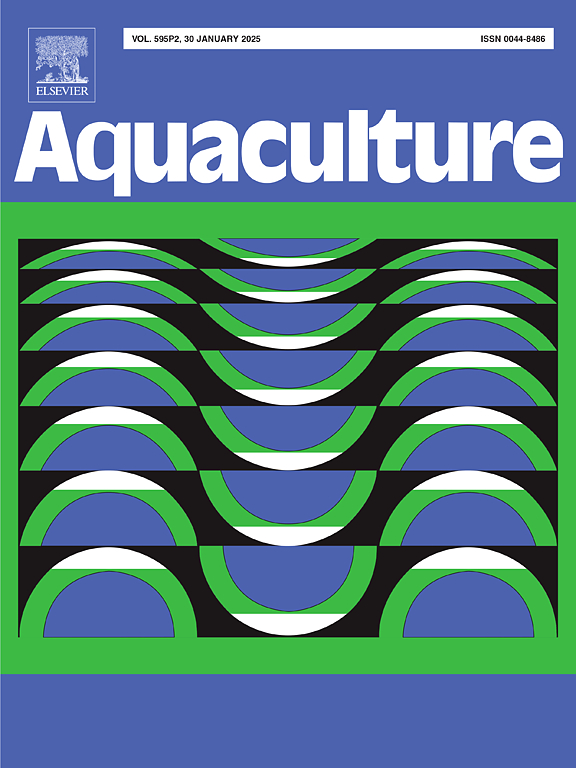Exosome-mediated ACSL4 mRNA delivery suppresses WSSV infection by promoting ferroptosis in mud crab
IF 3.9
1区 农林科学
Q1 FISHERIES
引用次数: 0
Abstract
As a novel immunomodulator, exosomes can deliver molecules such as mRNA and proteins between cells, providing resistance against pathogen infections. ACSL4, a lipid metabolizing enzyme, has been extensively studied as a well-established regulator of ferroptosis in the immune defense mechanism of vertebrates. However, the role of exosomes and ACSL4-mediated ferroptosis in the antiviral immune response has not been addressed in invertebrates. This study found that exosomes secreted by WSSV-infected mud crabs (Scylla paramamosain) can inhibit viral replication by activating ferroptosis. In addition, ACSL4 mRNA was found to be more packaged in exosomes secreted by hemocytes during viral infection in mud crabs. Then, the role of exosome-mediated ACSL4 mRNA in antiviral immunomodulation was further explored by RNAi methods. The results showed that WSSV-infected exosomes encapsulated with more SpACSL4 mRNA could lead to increased Fe2+, reactive oxygen species (ROS), and malondialdehyde (MDA) contents, as well as decreased GPX4 expression, so as to activate ferroptosis and further suppress WSSV replication in mud crabs. This study provides novel insights into the innate defense mechanisms of crustaceans.
求助全文
约1分钟内获得全文
求助全文
来源期刊

Aquaculture
农林科学-海洋与淡水生物学
CiteScore
8.60
自引率
17.80%
发文量
1246
审稿时长
56 days
期刊介绍:
Aquaculture is an international journal for the exploration, improvement and management of all freshwater and marine food resources. It publishes novel and innovative research of world-wide interest on farming of aquatic organisms, which includes finfish, mollusks, crustaceans and aquatic plants for human consumption. Research on ornamentals is not a focus of the Journal. Aquaculture only publishes papers with a clear relevance to improving aquaculture practices or a potential application.
 求助内容:
求助内容: 应助结果提醒方式:
应助结果提醒方式:


